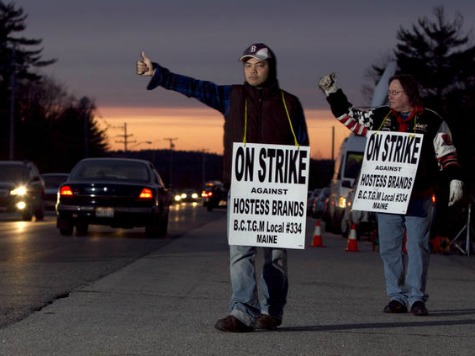
After Hostess began to liquidate its holdings last week, eliminating 18,500 jobs in the process, critics accused the company’s investors of engaging in so-called “vulture capitalism.”
Ripplewood Holdings, which bought Hostess, will actually lose nearly all of the $130 million it invested in Hostess. According to the New York Times, Ripplewood Holdings was founded by Timothy Collins, a major Democratic donor who wanted to invest more in companies like Hostess with major organized labor groups:
The behind-the-scenes tale of Hostess and Ripplewood may be the opposite of a project to buy it, strip it and flip it. When Mr. Collins originally looked at Hostess, he was trying to make investments in troubled companies with union workers. He was convinced that he could work with labor organizations to turn around iconic American businesses, and he hoped Hostess would become a model for similar deals.
Even amidst a “sputtering economy, the increase in commodity costs, pressure from competitors that were consolidating and out-of-whack labor costs,” Ripplewood “continued to throw good money after bad trying to keep Hostess from faltering”; according to many observers, “Hostess’s fate seemed assured from nearly the beginning.”
The Times notes that unlike “some of the horror stories we hear about private equity firms paying themselves huge dividends and leveraging their companies even further, Ripplewood didn’t do that.”
Frank Hurt, the president of the Bakery Confectionary Tobacco Workers and Grain Millers Union that put Hostess out of business by refusing to reach an agreement with Hostess like the Teamsters union did, said:
Our members are on strike because they have had enough. They are not willing to take draconian wage and benefit cuts on top of the significant concessions they made in 2004 and give up their pension so that the Wall Street vulture capitalists in control of this company can walk away with millions of dollars.
In reality, Ripplewood Holdings and 18,500 workers ended up losing because union bosses refused to strike a deal to save the iconic company.
Collins, of Ripplewood Holdings, was a donor to former House Majority Leader Richard Gephardt, a Democrat with ties to organized labor. His relationship with Gephardt helped consummate the deal and may have prevented Collins from actually being more aggressive in his initial negotiations with the company’s unions.
Even worse, Gephardt’s son was put on Hostess’s board and paid $100,000 a year.
If union bosses cannot even work with investors who specifically intended to make companies with a strong union presence become successful, there may not be much hope for other similarly troubled companies.
Further, Hostess’ failure may actually deter other likeminded investors who want to work with unions in turning around troubled companies from investing in such companies in the future.

COMMENTS
Please let us know if you're having issues with commenting.